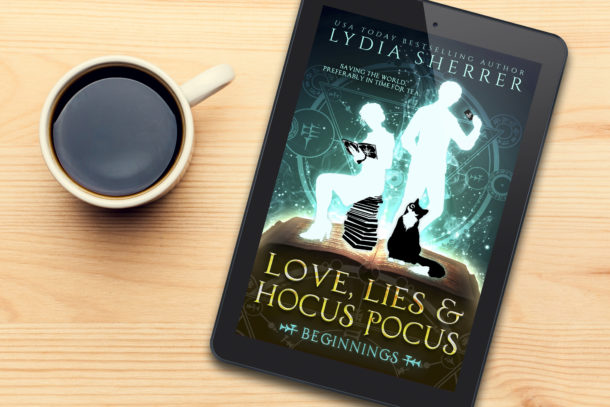Today, being my day off, is “Get Things Done” day. We all know how those usually turn out, right? Well my fingers are crossed, and if I can just stay away from my Facebook feed, I think I’ll be ok.
On my list of “To-Dos” today is to submit my second short story, “Hope”, to a couple magazines. Thank you everyone who helpfully beta read it for me! I already spent the morning doing a read-through of my new short story “Eye for an eye” [working title], and have just submitted it for beta reading.
I’m very excited about the story concept in “Eye for an eye”, and writing that story brings me to the the first tip I’d like to share in a series I hope to continue for a long time: how to become a writer (or a better writer!).
I’m young to this field myself, so don’t take these as gospel. However, as I’ve gone through the steps of honing my craft and learning the market, I’ve come across really good advice and useful things I’d like to share with my readers. These tips, though aimed at beginners, will hopefully be useful for everyone. They are, in short, things I have discovered to be vital in my on-going journey toward being a published, and hopefully successful, author. It’s a story in the making (pun intended), and I hope it encourages other young writers who don’t know where to start, to take the first step and dream big.
Becoming-A-Writer Tip # 1: Write everything down!!
This may seem elementary, but an essential part of being or becoming a good story-teller is to keep track of your stories and ideas. Don’t just think about them, write them down. Keep a notebook with you, or use your computer if you’re more technologically inclined. Personally, I have a notes program on my smart phone where I record my story ideas using voice-to-text, then transfer them to my computer when I get the chance. I have a running document where I number and date each of my story ideas, even the most inconsequential. I’m getting enough in there that I’ll have to start indexing them if I ever want to find a particular one again.
The point of all this is that your ideas are what make you a writer, they are what make you a living. They are your Muse, and when your Muse talks to you, you should pay attention and take her (or him) seriously. If you don’t write it down, you’ll forget it. Any time you think something interesting, write it down. Any time you read, see, or hear something that feels inspiring and makes you start to wonder what would happen next, write it down. That is your Muse starting a story. You don’t have time to expand every idea you have when you have it, so write it down and come back later. Many of you’re ideas will never become anything more, but some of them will.
My second and third short stories both came from random ideas that popped into my head and I jotted down, then forgot about for months. I was recently reading through my idea list, looking for something that jumped out at me begging to be written, and found them again. Just because the idea you come up with now doesn’t seem viable for a story, you should still write it down. Several, unconnected story ideas that come to you months apart could collide together one day and make an amazing story.
Writing down your ideas also helps increase your flow of creativity. I’ve noticed in the past year since I started writing things down that ideas come more often, and in better form. Building this habit gets your creative side working and churning, and that’s what we want as a writer. Even better, this is a useful trick for any creatively minded person. From art to music to architecture to business-building, when your Muse speaks, record it!
I hope Tip # 1 was helpful. It’s a good place to start for the beginner, and a good habit to keep up if you’re experienced. Below are some links for further reading on the topic that you should find useful. Have a great week everyone, and keep writing!
Check out my beginner Becoming-A-Writer Tips here:
#2: Know Your Market
#3 A: Read Read Read!
#3 B: Write Write Write!
My How to Advance Your Writing Career Series:
Part 2: Professional Development
And some useful articles I’ve come across:
Why-good-writers-keep-journals
The-importance-of-writing-down-your-ideas [from the co-founder of Twitter and Square, Jack Dorsey]


Preachin’ to the choir, sista! I write down EVERYTHING!! You make excellent points and reasons for doing this. You never know when some little bit you jotted down is going to suddenly bloom into a story or break up a logjam on another work in progress. And, as you say, once we get in the habit of doing that, writing down ideas and thoughts – half-baked or not – we get better at it and our creativity enhances.
Wonderful essay! Thank you so much for sharing!